
Steg: A Tranquil Alpine Haven in Liechtenstein
Nestled in the heart of the Alps, Steg is a picturesque village in Liechtenstein that offers a serene retreat for nature lovers and outdoor enthusiasts. Known for its stunning landscapes and peaceful ambiance, Steg is an ideal destination for those seeking to escape the hustle and bustle of city life. In Steg, you can explore a variety of hiking trails that wind through lush forests and verdant meadows, providing breathtaking views of the surrounding mountains. During the winter months, the village transforms into a winter wonderland, perfect for skiing, snowboarding, and snowshoeing. The nearby Malbun ski resort, just a short drive away, offers excellent slopes for both beginners and advanced skiers. Aside from its natural beauty, Steg is also rich in cultural heritage. The traditional wooden chalets and charming local inns reflect the region's history and provide a cozy atmosphere for visitors. Don't miss the chance to sample local cuisine at one of the village's quaint restaurants, where you can enjoy hearty Alpine dishes made with fresh, local ingredients.
Local tips in Steg
- Visit during the summer for lush hiking trails or in winter for excellent skiing opportunities.
- Try local dishes like Käsknöpfle at one of the village's traditional inns.
- Pack layered clothing as weather can change quickly in the mountains.
- Explore the nearby Malbun ski resort for more extensive winter sports options.
Steg: A Tranquil Alpine Haven in Liechtenstein
Nestled in the heart of the Alps, Steg is a picturesque village in Liechtenstein that offers a serene retreat for nature lovers and outdoor enthusiasts. Known for its stunning landscapes and peaceful ambiance, Steg is an ideal destination for those seeking to escape the hustle and bustle of city life. In Steg, you can explore a variety of hiking trails that wind through lush forests and verdant meadows, providing breathtaking views of the surrounding mountains. During the winter months, the village transforms into a winter wonderland, perfect for skiing, snowboarding, and snowshoeing. The nearby Malbun ski resort, just a short drive away, offers excellent slopes for both beginners and advanced skiers. Aside from its natural beauty, Steg is also rich in cultural heritage. The traditional wooden chalets and charming local inns reflect the region's history and provide a cozy atmosphere for visitors. Don't miss the chance to sample local cuisine at one of the village's quaint restaurants, where you can enjoy hearty Alpine dishes made with fresh, local ingredients.
When is the best time to go to Steg?
Iconic landmarks you can’t miss
Vaduz Castle
Explore Vaduz Castle, a majestic fortress offering stunning views and a glimpse into the rich history of Liechtenstein.
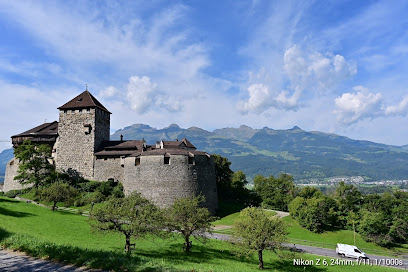
Burg Gutenberg
Explore Burg Gutenberg in Balzers, a medieval castle offering stunning views, rich history, and vibrant live music events in the heart of Liechtenstein.
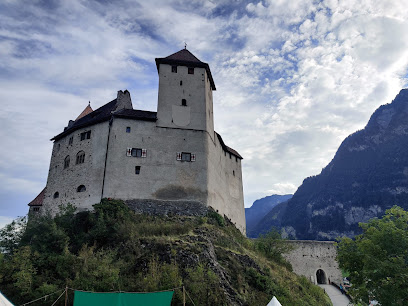
Kathedrale St. Florin
Discover the beauty and serenity of Kathedrale St. Florin in Vaduz, a stunning Gothic cathedral brimming with history and architectural wonder.
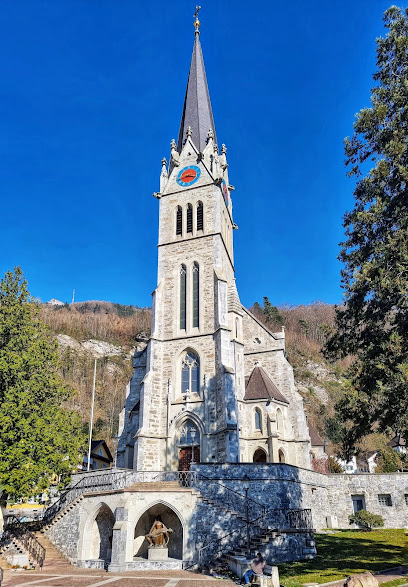
Liechtenstein Center
Explore the enchanting Principality of Liechtenstein from the Liechtenstein Center in Vaduz, your ultimate resource for travel insights and local experiences.
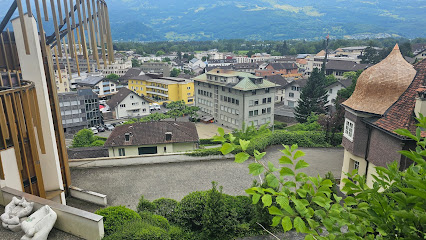
Alte Rheinbrücke
Explore the stunning Alte Rheinbrücke in Sevelen, Switzerland—a bridge that connects history, nature, and breathtaking views.
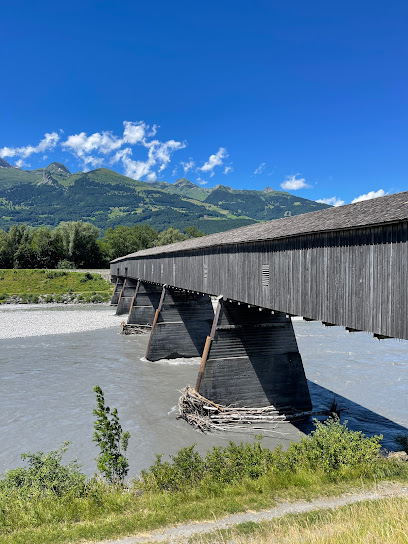
Kunstmuseum Liechtenstein
Explore the innovative world of contemporary art at Kunstmuseum Liechtenstein, a must-visit attraction in Vaduz, showcasing exceptional works and exhibitions.
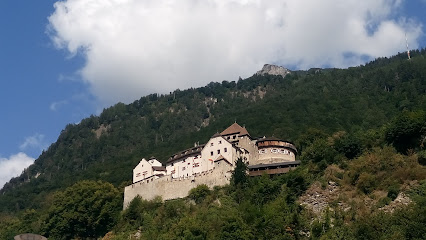
Park Hotel Sonnenhof
Discover luxury and breathtaking views at Park Hotel Sonnenhof, an elegant retreat in the heart of Vaduz, Liechtenstein's captivating capital.

Vögeli Alpenhotel Malbun
Discover the enchanting Vögeli Alpenhotel Malbun, a cozy retreat in the heart of Liechtenstein's majestic Alps, perfect for adventure and relaxation.

Berggasthaus Masescha
Discover the authentic flavors of the Alps at Berggasthaus Masescha, where breathtaking views and exceptional cuisine await your visit.
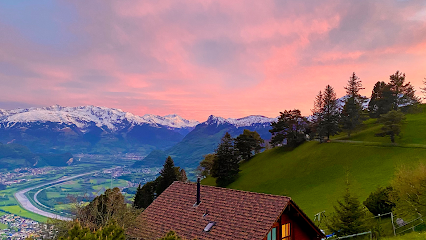
Gorfion Familotel Liechtenstein
Discover the enchanting Gorfion Familotel in Malbun, a family-friendly haven offering stunning views, cozy accommodations, and delicious dining options.
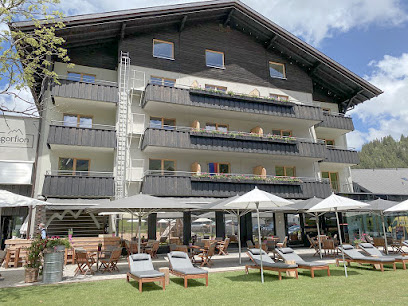
Jugendherberge Schaan-Vaduz
Experience the heart of Liechtenstein at Jugendherberge Schaan-Vaduz, your cozy base for adventure and cultural discovery.
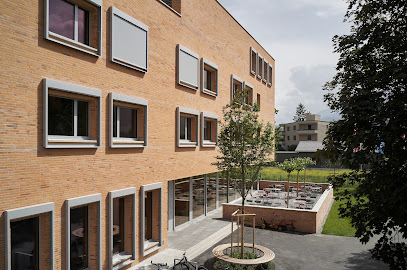
Liechtensteinisches LandesMuseum
Explore the rich cultural tapestry of Liechtenstein at the Liechtensteinisches LandesMuseum, a must-visit destination for art and history lovers.
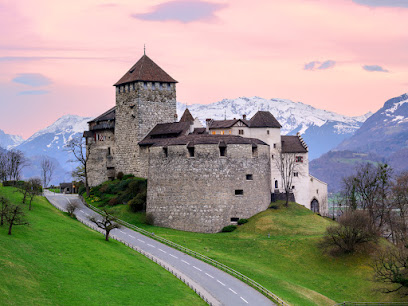
Postmuseum Vaduz
Explore the fascinating history of postal services in Liechtenstein at Postmuseum Vaduz, where communication meets culture in a charming setting.
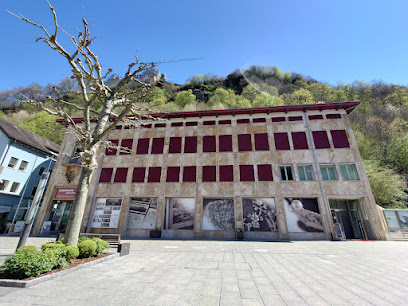
Hotel Galina
Discover the beauty of Triesenberg at Hotel Galina, a serene hotel offering stunning mountain views and easy access to outdoor adventures.

Hotel Kulm
Experience luxury and breathtaking views at Hotel Kulm, Triesenberg's premier destination for relaxation and adventure in the heart of the Alps.

Unmissable attractions to see
Vaduz Castle
Majestic medieval castle overlooking Vaduz, home to Liechtenstein's royal family since 1939. Closed to the public, offering stunning views.
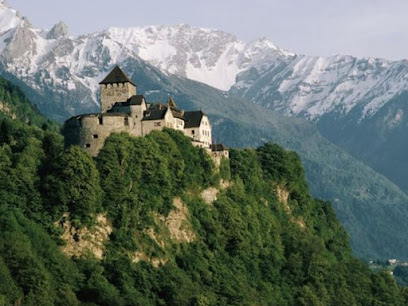
Heididorf
Experience the timeless charm of Heidi's world in the authentic Swiss village of Maienfeld, where the beloved story comes to life.
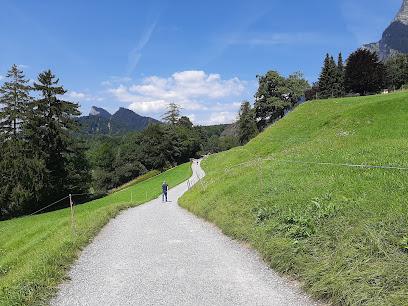
Obere Burg
Explore the ruins of Obere Burg in Schellenberg, Liechtenstein, and step back in time to discover medieval history with stunning Alpine views.
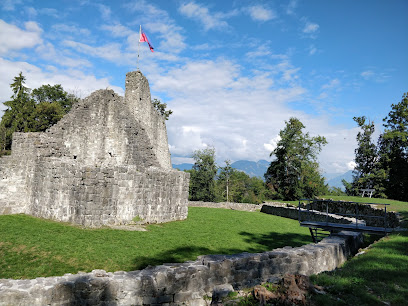
Lama- & Alpakahof Triesenberg
Experience the charm of Liechtenstein's Alps with gentle llamas and alpacas at this unique mountain farm in Triesenberg.
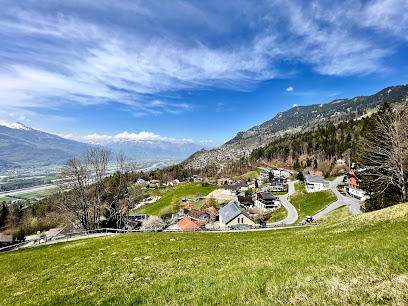
Cellars of the Prince of Liechtenstein
Experience royal winemaking at the Cellars of the Prince of Liechtenstein in Vaduz. Sample exquisite wines in a historic setting.
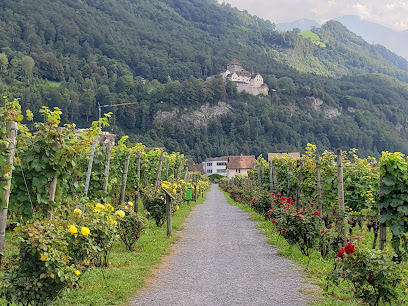
Aussichtsturm Gaflei
Ascend to Aussichtsturm Gaflei for breathtaking panoramic views of Vaduz and the Liechtenstein Alps, a perfect destination for hikers and families.
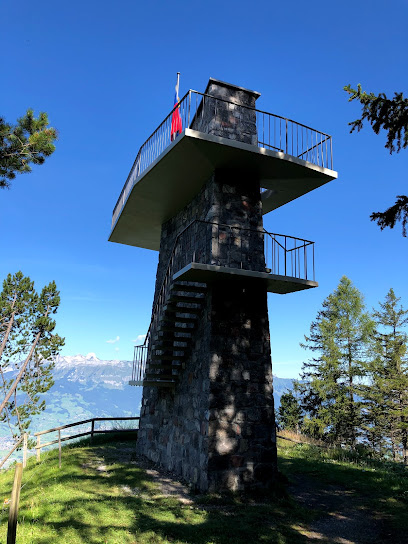
Rope Park in the Forest
Experience treetop thrills at Rope Park in the Forest, Triesen. Fun for all ages with rope courses, ziplines, and stunning natural beauty.
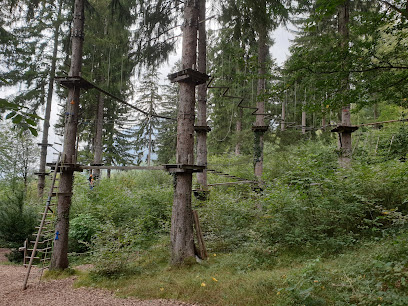
Bärgällasattel
Discover Bärgällasattel: A picturesque hiking destination near Silum, Liechtenstein, offering serene alpine trails and panoramic views.
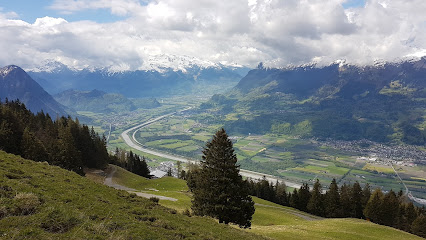
Heidiweg
Hike through Heidi's homeland in Maienfeld, Switzerland, and experience the timeless story amidst stunning Alpine scenery and charming vineyards.
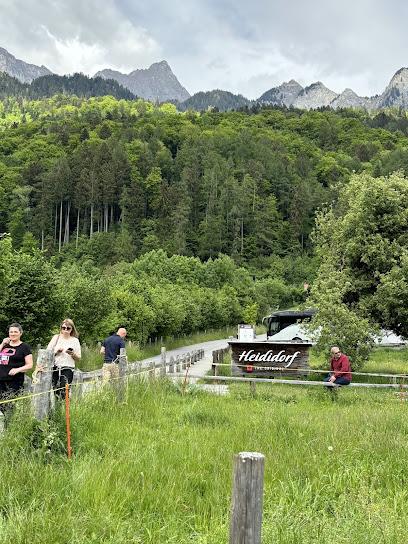
DoMus - Museum und Galerie der Gemeinde Schaan
Explore Schaan's cultural heart at DoMus: where local art, history, and community come alive through engaging exhibitions and events.
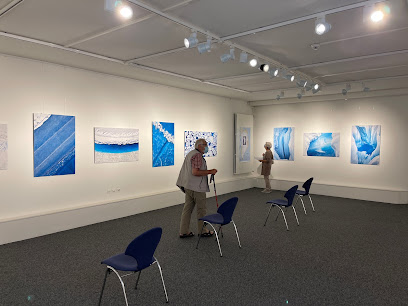
Schlosswiese
Escape to Schlosswiese in Vaduz: A serene park with castle views, perfect for relaxation, picnics, and enjoying nature in Liechtenstein's capital.
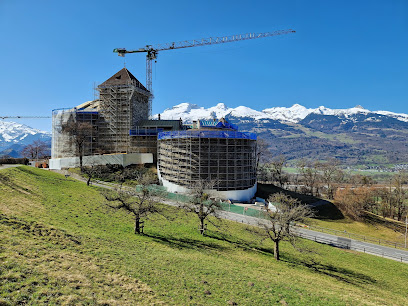
Sass-Seeli
Discover the serene beauty of Sass-Seeli in Malbun, Liechtenstein: a perfect hiking escape with stunning Alpine views and tranquil trails.
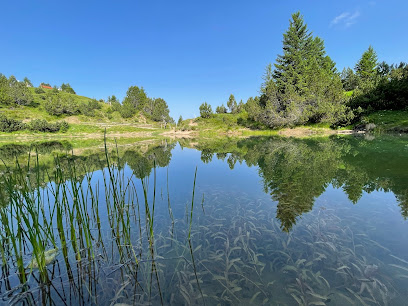
Chillerbänkli
Discover the breathtaking views and tranquility of Chillerbänkli, a serene retreat in Balzers, perfect for relaxation and photography.
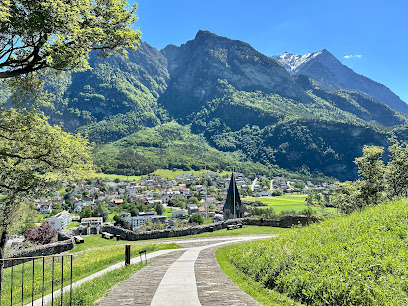
Sassförkle
Discover Sassförkle in Malbun: A hiking paradise with trails for all levels, offering breathtaking alpine scenery and tranquil escapes in Liechtenstein.
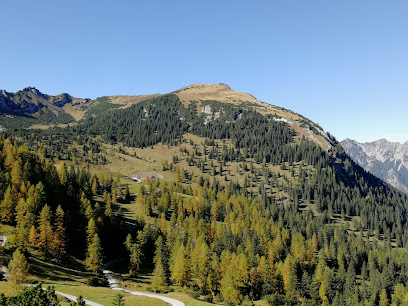
Tälihöhi
Explore Tälihöhi's stunning hiking trails in Malbun, Liechtenstein, for breathtaking alpine scenery and invigorating outdoor adventures.
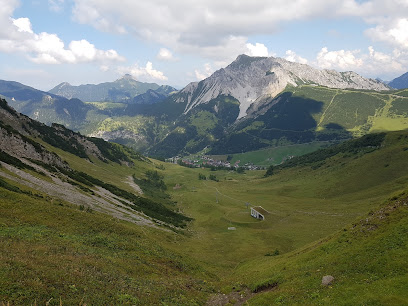
Essential places to dine
Galerie am See
Discover authentic Swiss flavors at Galerie am See – where culinary tradition meets breathtaking lakeside views.
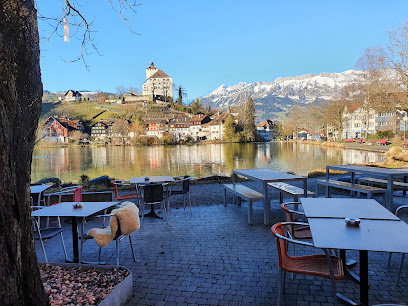
New Castle
Experience exquisite dining at New Castle in Vaduz - where local flavors meet contemporary culinary artistry.
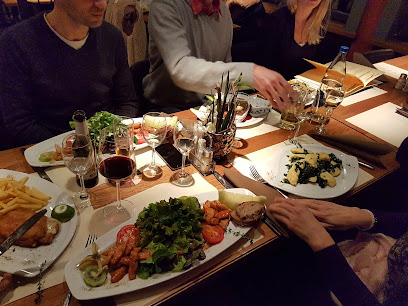
Hotel Turna Malbun
Discover Hotel Turna Malbun: A perfect blend of stunning Alpine views and delightful dining experiences in Triesenberg.
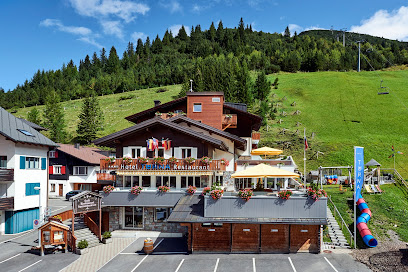
Brasserie Burg
Savor exquisite Italian and American cuisine at Brasserie Burg in Vaduz – where modern dining meets delightful flavors.
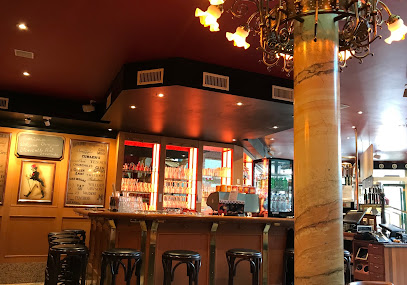
JUFA Hotel Malbun
Experience breathtaking mountain views and exceptional hospitality at JUFA Hotel Malbun – your gateway to adventure in Liechtenstein.
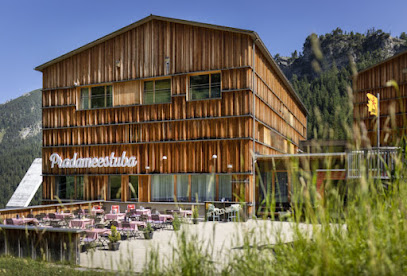
Berggasthaus Masescha
Experience exquisite dining at Berggasthaus Masescha amidst breathtaking mountain views in Triesenberg.
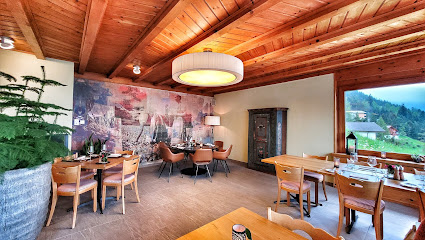
Gorfion Familotel Liechtenstein
Experience culinary delights and family-friendly accommodations at Gorfion Familotel Liechtenstein amidst breathtaking alpine scenery.
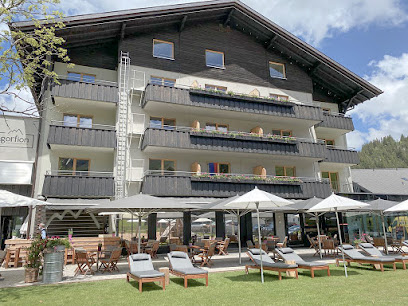
Schlössle Mahal
Experience authentic Indian cuisine at Schlössle Mahal in Vaduz - where every meal is a culinary journey through India’s rich flavors.
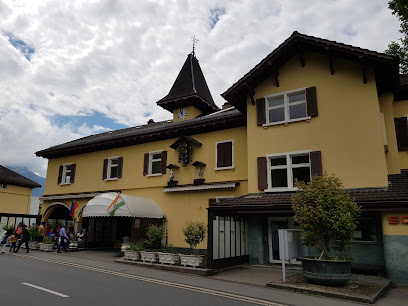
Restaurant Amarone
Discover the flavors of Liechtenstein at Restaurant Amarone - where traditional cuisine meets modern culinary artistry in Vaduz.
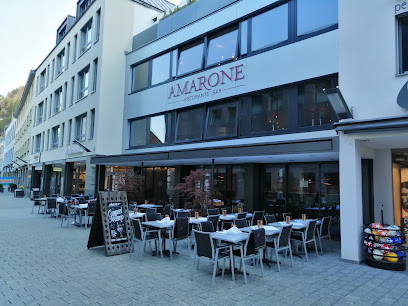
Kainer
Discover Kainer in Triesenberg: where local flavors meet contemporary cuisine amidst breathtaking views.
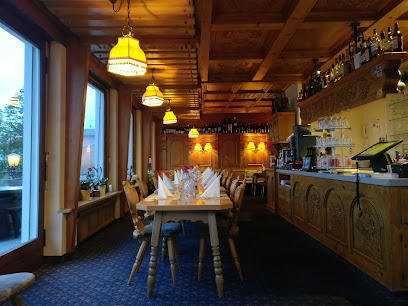
Wirtschaft zum Löwen
Experience authentic Liechtenstein cuisine at Wirtschaft zum Löwen in Schellenberg - where culinary tradition meets breathtaking views.
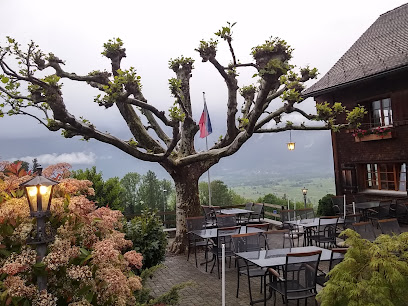
Hotel | Restaurant Berghaus Malbun Buchserberg
Experience exquisite dining and breathtaking views at Hotel | Restaurant Berghaus Malbun Buchserberg in Switzerland's stunning alpine landscape.
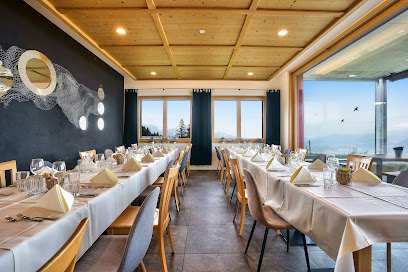
Torkel
Experience authentic Swiss cuisine at Torkel in Vaduz – where tradition meets taste in every dish.
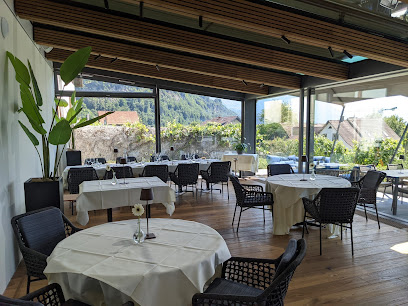
made-in-italy.li
Experience authentic Italian cuisine at Made-in-Italy in Vaduz – where every dish tells a story of culinary excellence.
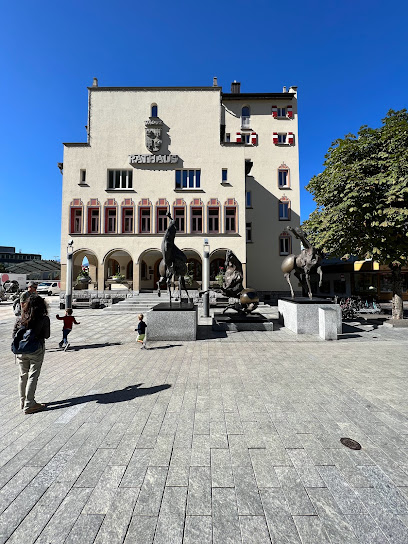
Cafe Restaurant Engel Asian & Local
Discover exquisite Asian and local flavors at Café Restaurant Engel in Vaduz - where culinary tradition meets modern taste.
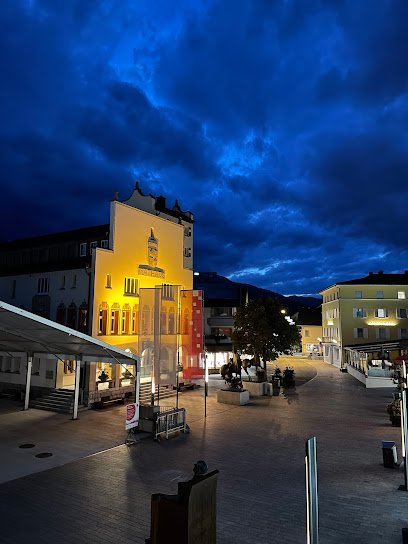
Markets, malls and hidden boutiques
Hoi Liechtenstein - Souvenir Boutique
Explore Hoi Liechtenstein for unique souvenirs, wines, and gourmet delights that embody the spirit of Vaduz and its rich culture.
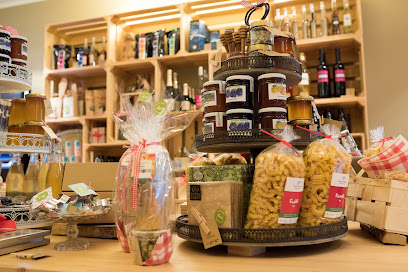
Bärgwelten
Explore Bärgwelten in Vaduz for a unique mix of fashion, accessories, and local liquors, perfect for every traveler.
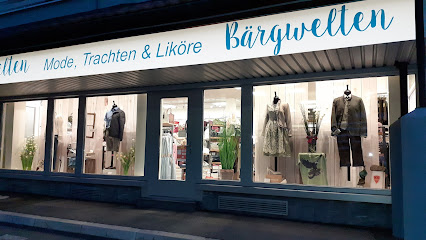
Vip's Men's Fashion
Experience refined men's fashion at Vip's Men's Fashion in Vaduz, where style meets elegance and quality is paramount.
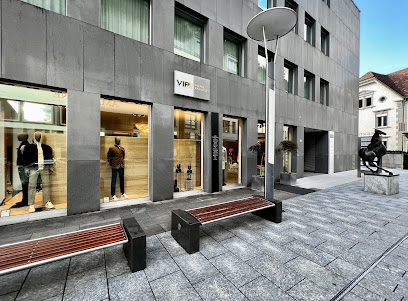
Central Plaza
Discover unique souvenirs and exquisite watches at Central Plaza in Vaduz, the perfect stop for tourists seeking a piece of Liechtenstein.
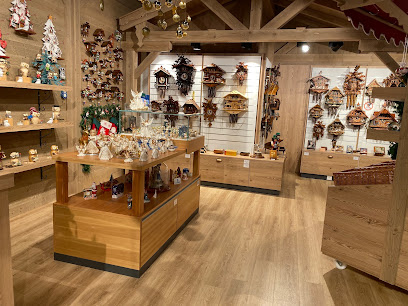
Hedihof
Experience the best of local produce at Hedihof, a charming farm shop in Triesenberg offering fresh, artisanal goods amidst stunning views.
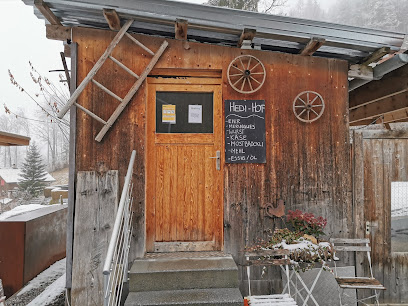
Dunja A. Sprenger - Jones Vaduz
Discover exquisite fashion at Dunja A. Sprenger - Jones Vaduz, a chic dress store offering a curated selection for every occasion.
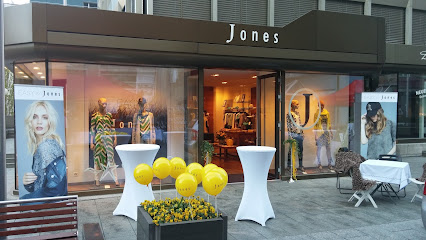
FELIX W. STUDIO Liechtenstein
Explore the elegance of men's fashion at FELIX W. STUDIO in Vaduz, where quality meets contemporary style in a stunning boutique environment.

Brogle Fashion Est
Explore Vaduz's premier shopping destination at Brogle Fashion, where style meets elegance in a beautiful setting.
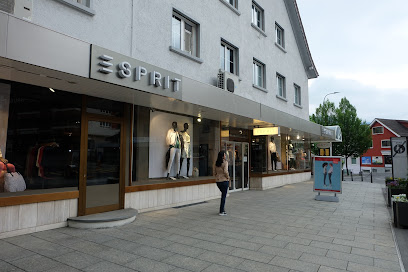
Palmers
Shop at Palmers in Vaduz for exquisite lingerie that combines elegance, comfort, and style, making your shopping experience unforgettable.
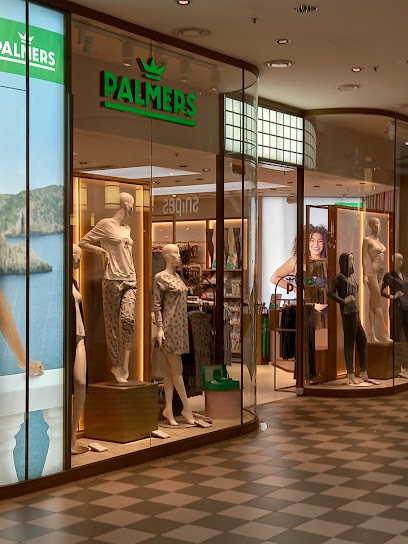
Marc O'Polo
Explore contemporary fashion and high-quality clothing at Marc O'Polo in Vaduz - where style meets elegance.
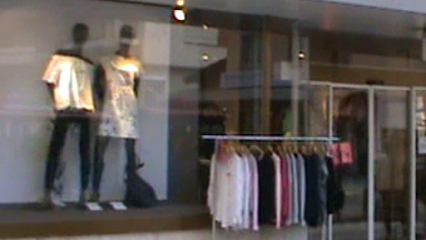
風鈴販売店
Experience the melodic charm of handcrafted wind chimes in Vaduz – a perfect souvenir that captures the essence of Liechtenstein.
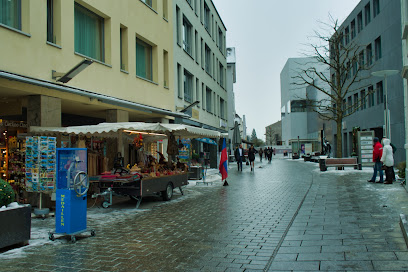
ESPIRIT
Discover stylish and affordable clothing at ESPIRIT, Vaduz's premier outlet store for fashion enthusiasts seeking quality and variety.
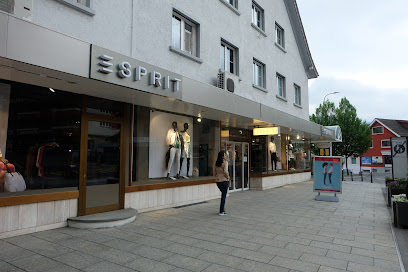
hierbeimir – der regionale Online-Shop
Explore the best of Liechtenstein with Hierbeimir, your regional online shop in Vaduz, featuring local craftsmanship and gourmet delights.

Hofladenautomat
Experience the local flavors of Triesenberg at Hofladenautomat, a unique farm shop offering fresh produce and artisanal goods.
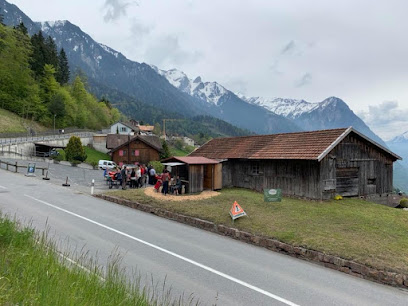
NILE
Discover contemporary fashion at NILE, Vaduz's premier women's clothing store, blending style and local charm in every unique piece.
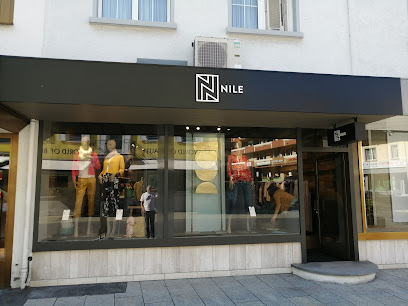
Essential bars & hidden hideouts
Kainer
Discover Kainer in Triesenberg, where exquisite gastropub cuisine meets breathtaking views of the Rhine.
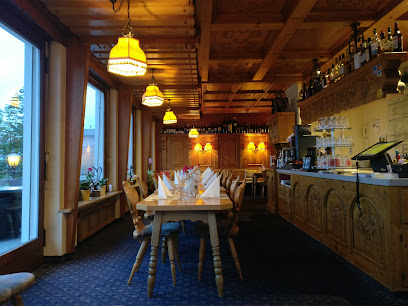
Esquire Bar.Bistro
Discover the vibrant atmosphere and diverse flavors at Esquire Bar.Bistro in Vaduz, a perfect spot for tourists seeking local culinary delights.
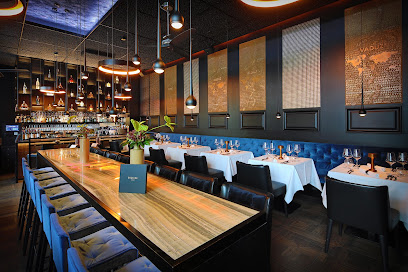
Black Pearl Bar
Discover the lively ambiance and exquisite cocktails at Black Pearl Bar in Schaan, Liechtenstein - a cocktail lover's paradise.
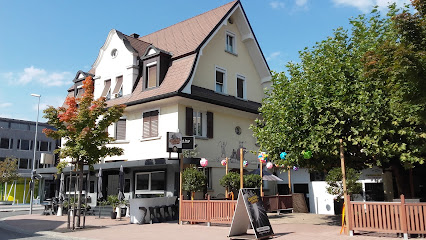
Zur Alten Eiche
Indulge in regional culinary delights at Zur Alten Eiche, a charming restaurant and beer garden in Triesen, perfect for families and special celebrations.
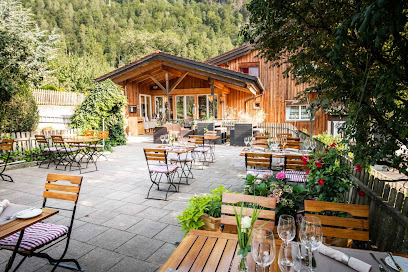
St. Martins Pub am Platz
Discover the authentic taste of Ireland at St. Martins Pub am Platz in Eschen, where great food and a lively atmosphere await.
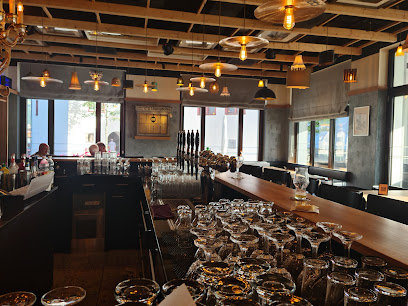
Bergstübli
Experience the authentic flavors of Liechtenstein at Bergstübli, a charming restaurant in Steg offering exceptional local cuisine in a beautiful alpine setting.
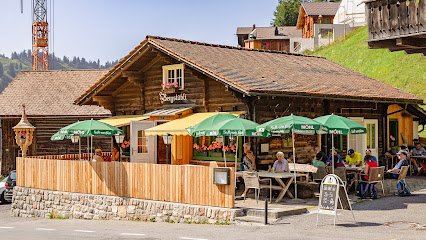
Zwei Bar
Experience the vibrant nightlife at Zwei Bar in Vaduz, offering a unique blend of cocktails, music, and a cozy atmosphere for every night out.
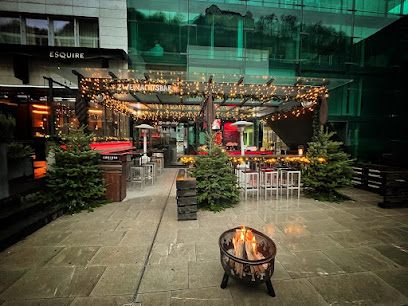
Restaurant Seeblick
Experience exquisite local cuisine and breathtaking views at Restaurant Seeblick in the heart of Steg, perfect for your culinary adventure.
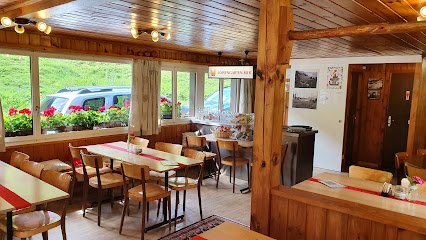
Take 5 Vaduz
Discover the lively ambiance and signature cocktails at Take 5 Vaduz, a premier bar in Triesen perfect for socializing and entertainment.
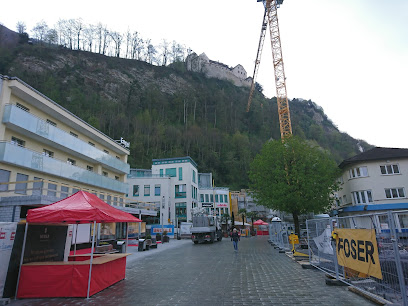
Lömagarta
Experience Lömagarta, the premier beer garden in Vaduz, Switzerland, offering a unique selection of brews in a cozy and inviting atmosphere.
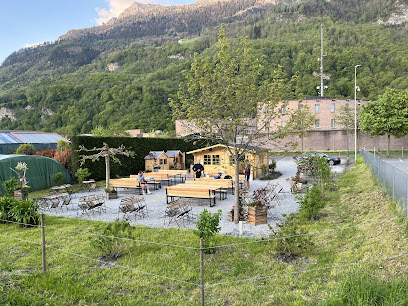
Long John Bar
Discover the vibrant nightlife at Long John Bar in Schaan, where great drinks and an inviting atmosphere await you.
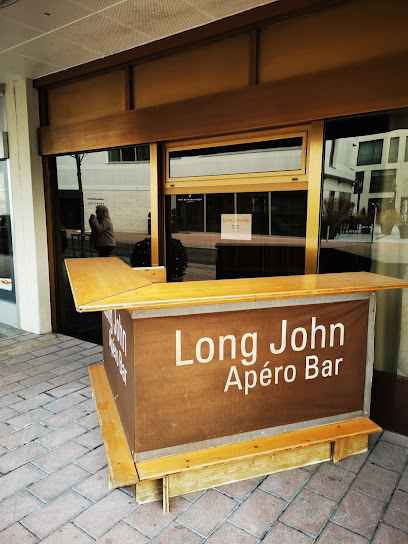
Viva
Experience the vibrant nightlife of Triesen at Viva, the bar that offers a perfect blend of great drinks and lively atmosphere.
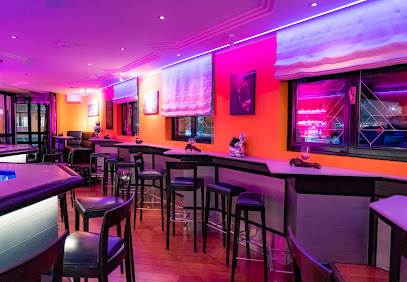
Andy's Bunker
Discover the vibrant nightlife of Schaan at Andy's Bunker, a local bar offering great drinks, live music, and a welcoming atmosphere.

Elch bar
Discover the charm of Elch Bar in Malbun, where Alpine hospitality meets a cozy atmosphere for relaxation and enjoyment.
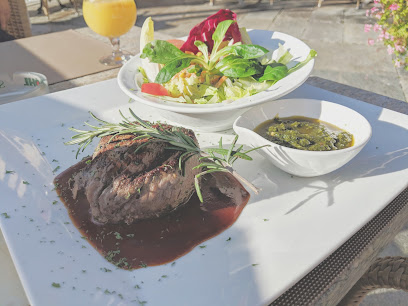
Local Phrases about Steg
-
- HelloHallo
[hah-loh] - GoodbyeAdieu
[ah-dyoo] - YesJa
[yah] - NoNei
[nye] - Please/You're welcomeBitte
[bih-teh] - Thank youDanke
[dahn-keh] - Excuse me/SorryEntschuldigung
[ent-shool-dee-goong] - How are you?Wie gaht's?
[vee gahts] - Fine. And you?Guat. Und dir?
[gwat oont deer] - Do you speak English?Sprichsch Englisch?
[shpree-sh en-gleesh] - I don't understandI verstah nöd
[ee fehr-shta nuth]
- HelloHallo
-
- I'd like to see the menu, pleaseIch möcht gärn d'Menükarte luege, bitte
[eekh murkht gairn deh-men-oo-kahr-teh loo-geh, bih-teh] - I don't eat meatIch ässe kein Fleisch
[eekh eh-suh kine flysh] - Cheers!Proscht!
[proh-sht] - I would like to pay, pleaseIch möcht bitte zahle
[eekh murkht bih-teh tsah-luh]
- I'd like to see the menu, pleaseIch möcht gärn d'Menükarte luege, bitte
-
- Help!Hilf!
[helf] - Go away!Gang weg!
[gahng vehg] - Call the Police!Ruf die Polizei!
[roof dee poh-lee-tsey] - Call a doctor!Ruf en Dokter!
[roof en dohk-ter] - I'm lostI ha mi verloufe
[ee hah mee fehr-loo-feh] - I'm illI bi krank
[ee bee krahnk]
- Help!Hilf!
-
- I'd like to buy...Ich möcht ... koufe
[eekh murkht ... kou-fuh] - I'm just lookingIch luege nur
[eekh loo-geh noor] - How much is it?Wieviel choschtet es?
[vee-feel khoshtet es] - That's too expensiveDas isch z' teuer
[dahs ish tsoo toy-er] - Can you lower the price?Chasch du de Priis reduziere?
[khahsh doo deh prees reh-doo-tsee-eh-ruh]
- I'd like to buy...Ich möcht ... koufe
-
- What time is it?Wieviel Uhr isch es?
[vee-feel oor ish es] - It's one o'clockEs isch eis Uhr
[es ish eis oor] - Half past (10)Halbi (10)
[halb-ee (tsehn)] - MorningMorga
[mor-gah] - AfternoonNamittaag
[nah-mit-tahg] - EveningAbig
[ah-big] - YesterdayGestern
[geh-shtern] - TodayHüt
[hoot] - TomorrowMorn
[morn] - 1Eis
[eis] - 2Zwei
[tsvai] - 3Drei
[dry] - 4Vier
[feer] - 5Füf
[foof] - 6Sechs
[zeks] - 7Sibe
[zee-beh] - 8Acht
[ahkht] - 9Nün
[nooen] - 10Zäh
[tsaeh]
- What time is it?Wieviel Uhr isch es?
-
- Where's a/the...?Wo isch en/d'...?
[voh ish en/deh] - What's the address?Was isch d'Adresse?
[vahs ish deh-ad-reh-seh] - Can you show me (on the map)?Chasch mir das zeige (uf em Plan)?
[khahsh meer dahs tsai-geh (oof em plahn)] - When's the next (bus)?Wänn fahrt de nächschti (Bus)?
[venn fahrt deh nehkh-shtee (boos)] - A ticket (to ....)E Billett (nach ....)
[eh bil-leht (nahkh)]
- Where's a/the...?Wo isch en/d'...?
History of Steg
-
Steg, a picturesque village in the municipality of Triesenberg, is nestled in the heart of the Alps. Its origins date back to the early medieval period when the area was first settled by the Walser people. The Walsers, originally from the Swiss canton of Valais, migrated across the Alps in the 13th and 14th centuries. They brought with them unique cultural practices and architectural styles that continue to influence the region today.
-
The migration of the Walser people was a significant event in the history of Steg. These hardy mountain dwellers were known for their resilience and ability to thrive in the harsh Alpine environment. They established their villages in high-altitude areas, bringing with them their distinctive wooden houses and barns. The Walser culture, language, and traditions have left an indelible mark on Steg and the surrounding region.
-
For centuries, the residents of Steg relied on agriculture and livestock farming as their primary means of livelihood. The steep, terraced fields and alpine pastures are a testament to the ingenuity and hard work of the local farmers. Traditional farming practices, such as transhumance—the seasonal movement of livestock between mountain and valley pastures—are still practiced today, preserving an important aspect of Steg's cultural heritage.
-
Steg is home to several religious and cultural landmarks that reflect its rich history. The village church, dedicated to St. Joseph, is a focal point of the community. Built in a traditional Alpine style, the church is adorned with beautiful frescoes and wooden carvings. Religious festivals and events, such as the annual procession on St. Joseph's Day, are integral to the cultural life of Steg, bringing together residents and visitors alike.
-
During World War II, Liechtenstein maintained a stance of neutrality, and Steg, like the rest of the country, was spared the devastation that befell much of Europe. However, the village played a role in providing refuge for those fleeing the conflict. The local populace demonstrated remarkable compassion and solidarity, offering shelter and support to displaced individuals and families during this tumultuous period.
-
In recent decades, Steg has undergone significant development, transforming from a primarily agrarian community into a popular tourist destination. The construction of modern amenities and infrastructure, including hiking trails, ski resorts, and lodging facilities, has attracted visitors from around the world. Despite these changes, Steg has managed to retain its traditional charm and cultural identity, offering a unique blend of history and modernity.
-
Steg is renowned for its stunning natural beauty, characterized by rugged mountain landscapes, lush forests, and pristine alpine lakes. The area offers a plethora of outdoor activities, including hiking, skiing, and mountain biking. The Malbun-Steg ski area, in particular, is a major draw for winter sports enthusiasts. The village's commitment to preserving its natural environment ensures that future generations can continue to enjoy its scenic splendor.
Steg Essentials
-
Steg is located in the alpine region of Liechtenstein. The nearest major airport is Zurich Airport in Switzerland, approximately 130 kilometers away. From Zurich, you can take a train to Sargans, which is the closest Swiss town to Liechtenstein. From Sargans, you can take a bus or taxi to Steg. The journey from Zurich to Steg typically takes around 2.5 to 3 hours. Alternatively, you can rent a car and drive directly to Steg, which offers a scenic route through the Swiss and Liechtenstein countryside.
-
Steg is a small village, and most of its attractions are accessible by foot. For longer trips, local buses connect Steg with other parts of Liechtenstein, including the capital, Vaduz. Taxis are also available but can be relatively expensive. Renting a car is a convenient option if you plan to explore the surrounding regions, including neighboring Switzerland and Austria. Be aware that public transportation may have limited schedules, especially on weekends and holidays.
-
The official currency in Liechtenstein is the Swiss Franc (CHF). Credit cards are widely accepted in hotels, restaurants, and shops in Steg. However, it's advisable to carry some cash for smaller establishments or in case you visit rural areas. ATMs are available in nearby towns such as Vaduz and Triesenberg, so you can withdraw cash if needed.
-
Steg is generally a very safe destination for tourists. Crime rates are extremely low, and the community is tight-knit. However, it's always wise to take standard precautions, such as not leaving valuables unattended and being aware of your surroundings. Avoid isolated areas at night, although such areas are rare in this small village.
-
In case of emergency, dial 112 for immediate assistance. The nearest hospital is located in Vaduz, which is around 20 kilometers away. Make sure to have travel insurance that covers medical emergencies. For minor health issues, there are pharmacies in Vaduz and Triesenberg where you can purchase over-the-counter medications.
-
Fashion: Do dress in layers, as the weather can change quickly in the mountains. Avoid overly casual clothing when dining in upscale restaurants. Religion: Do respect local customs and traditions. If visiting churches, dress modestly and remove hats. Public Transport: Do be respectful and give up your seat to elderly passengers. Don't eat or drink on public transport. Greetings: Do greet people with a friendly handshake. A simple 'Grüezi' (hello in Swiss German) is appreciated. Eating & Drinking: Do try local delicacies like Käsknöpfle (a type of pasta with cheese). Don’t leave food on your plate, as it is considered wasteful.
-
To experience Steg like a local, consider visiting during one of the village festivals, where you can enjoy traditional music, food, and dance. Engage with locals at community events or in small village cafes. Take a hike on the picturesque trails around Steg, and don't miss the Malbun ski resort if you are visiting in winter. For a unique experience, try mountain biking or paragliding in the surrounding areas.
Trending Landmarks in Steg
-
Vaduz Castle
-
Burg Gutenberg
-
Kathedrale St. Florin
-
Liechtenstein Center
-
Alte Rheinbrücke
-
Kunstmuseum Liechtenstein
-
Park Hotel Sonnenhof
-
Vögeli Alpenhotel Malbun
-
Berggasthaus Masescha
-
Gorfion Familotel Liechtenstein
-
Jugendherberge Schaan-Vaduz
-
Liechtensteinisches LandesMuseum
-
Postmuseum Vaduz
-
Hotel Galina
-
Hotel Kulm
Nearby Cities to Steg
-
Things To Do in Vaduz
-
Things To Do in Balzers
-
Things To Do in Schaan
-
Things To Do in Eschen
-
Things To Do in Mauren
-
Things To Do in Gamprin
-
Things To Do in Schellenberg
-
Things To Do in Ruggell
-
Things To Do in Dornbirn
-
Things To Do in Arosa
-
Things To Do in Davos
-
Things To Do in Bregenz
-
Things To Do in St. Anton am Arlberg
-
Things To Do in St. Moritz
-
Things To Do in Zurich





